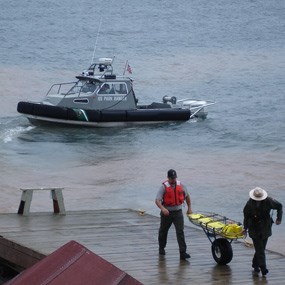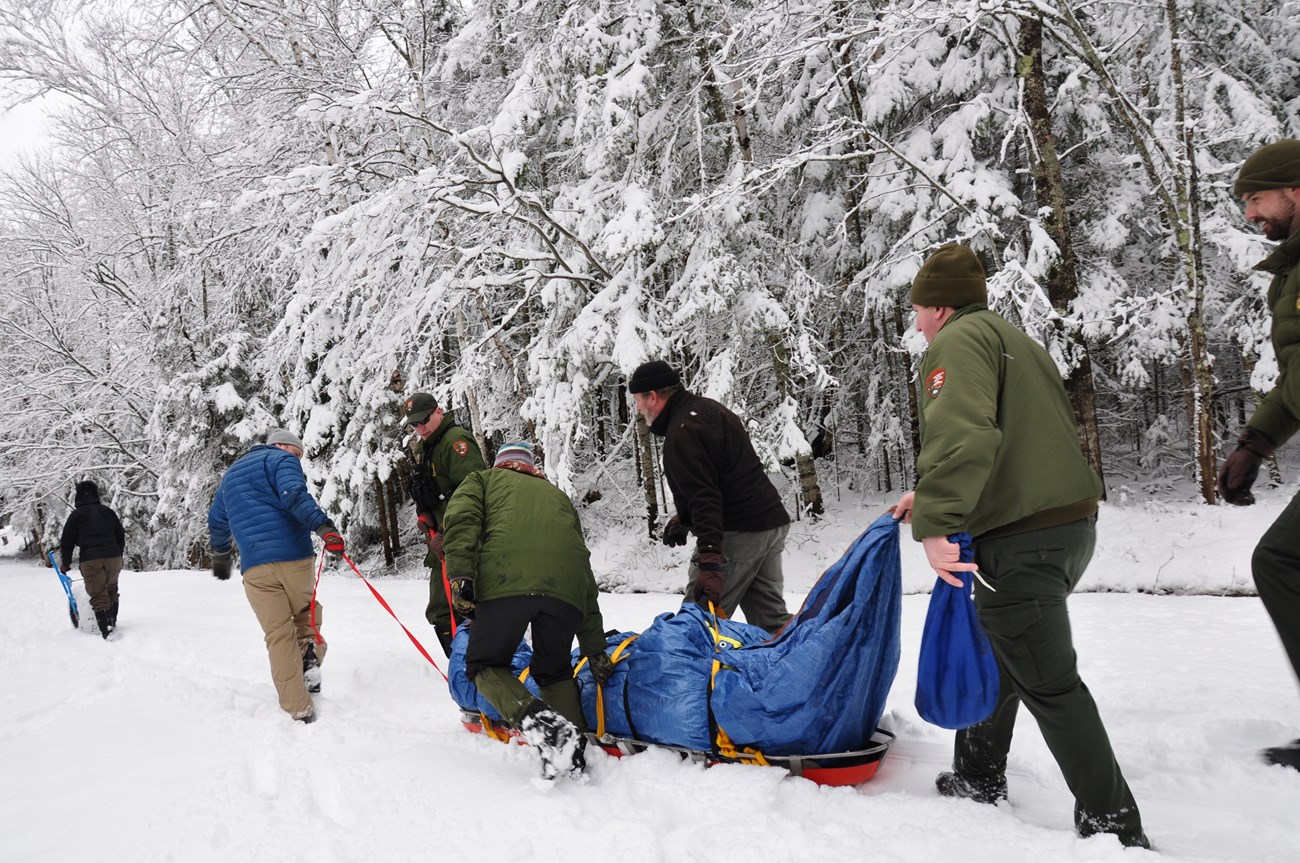
NPS Photo Safety Is Your Responsibility
Apostle Islands National Lakeshore encompasses more than 500 square miles of Lake Superior. Visitors must be aware of the risks and hazards associated with the lake and island environments. Lake Superior is notorious for its cold temperatures, rough seas, fog, and sudden squalls. Boaters should be alert to changing conditions and should consult current marine forecasts before leaving on a trip. Marine weather forecasts are broadcast on marine channel 7, 162.525 MHz.

NPS Photo/N. Howk BearsRemember that you are in bear country. Check out the Bear Country Safety page for more information about bears and how to help prevent them from being attracted to campsites. Drinking WaterPotable water may be available seasonally at Little Sand Bay, Meyers Beach, Sand Island-East Bay, and Stockton Island-Presque Isle. Be prepared in case water is not available. Water from the lake should be boiled for two minutes or filtered through an adequate filter (0.4 microns pore size) before use. This precaution eliminates many organisms including Giardia, a bacteria which causes an intestinal disorder. FiresCampfires must be built in metal fire receptacles where provided. Beach fires must be built on bare beach sand and be no more than three feet in height or diameter. Dead, loose wood on the ground in forested areas or unvegetated beach areas may be collected for firewood. To limit the spread of harmful insects, do NOT bring firewood into the park. Chain saws cannot be operated in the national lakeshore. InsectsBiting insects can be prevalent on the islands from June to September. Wearing long pants and long sleeved shirts will provide some protection from mosquitos, biting flies, and ticks. Insect repellents are helpful. The ticks that transmit Lyme Disease and Ehrlichiosis are found in the park. If you notice a rash, flu-like symptoms, or pain in the joints following a tick bite, call your physician. PetsPets must be kept on a leash that is six feet or shorter and never left unattended. Persons having pets within the park must dispose of all pet excrement. Excrement must be deposited in wooded areas at least 100 feet from any trail, campsite, dock, building, picnic area, or water source. Pets are not allowed in public buildings or on scheduled Apostle Islands Cruise Service trips (except guide dogs accompanying visually or hearing impaired people). 
NPS Photo/ N. Howk Staying Safe in the Apostle Islands |
Last updated: November 18, 2025
